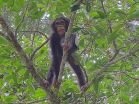(Press-News.org) Experts agree that it's a great way of staying fit and healthy at any age, but when faced with higher prices people are likely to swim less often, while other forms of physical activity such as working out or walking are barely affected.
According to a study by Brunel University London's Health Economics Research Group (HERG), swimming is the individual activity that most people would drop if they faced higher prices.
The study included interviews with 1,683 people, 83% of whom took part in physical activity in some form. It found that people facing 10% higher entry fees to swimming pools were 29% less active, once other variations such as their age and differences in income were taken into account.
A similar 10% higher price of a gym workout would hardly dent enthusiasm, with participation dropping by just 3%. In the case of brisk walking, the expected drop would be even less at 2%.
Prof Julia Fox-Rushby, Professor of Health Economics at Brunel's HERG, said: "Among those surveyed there was a very clear understanding that physical activity is a means of getting healthy, losing weight and having fun.
"But, we have shown for the first time in England, that engaging in physical activity costs you real money and people make a trade-off between whether to go to a leisure centre and how much it would cost them."
The study supports the view that positive financial incentives, such as subsidising the price of participation, could generally lead to an increase in the quantity of physical activity people participate in.
However, it also suggests that a policy of subsidising an individual activity such as swimming could be more effective than a blanket implementation on all forms of physical activity.
INFORMATION:
Prof Fox-Rushby carried out the study with Dr Subhash Pokhrel and Dr Nana Anokye at HERG.
Notes to Editors:
Of the 1,683 people surveyed, an average of £2.40 was spent per occasion of participation in physical activity, and 23 minutes on average was spent on travelling to the place of participation.
The paper 'Economic analysis of participation in physical activity in England: implications for health policy' by Nana Anokye, Subhash Pokhrel and Julia Fox-Rushby was published in the International Journal of Behavioral Nutrition and Physical Activity on 14th September 2014 and can be viewed here.
Contact:
Keith Coles, External Communications Officer, Brunel University London, keith.coles@brunel.ac.uk, 01895 266599.
Prof Julia Fox-Rushby, Professor of Health Economics, Health Economics Research Group, Brunel University London, julia.fox-rushby@brunel.ac.uk, 01895 266864.
When faced with higher prices, swimming is the activity most likely to take a dive
Increase in costs leads people to drop swimming, but other forms of exercise are unaffected
2014-10-28
ELSE PRESS RELEASES FROM THIS DATE:
Tea and citrus products could lower ovarian cancer risk, new UEA research finds
2014-10-28
Tea and citrus fruits and juices are associated with a lower risk of developing ovarian cancer, according to new research from the University of East Anglia (UEA).
Research published today reveals that women who consume foods containing flavonols and flavanones (both subclasses of dietary flavonoids) significantly decrease their risk of developing epithelial ovarian cancer, the fifth-leading cause of cancer death among women.
The research team studied the dietary habits of 171,940 women aged between 25 and 55 for more than three decades.
The team found that those ...
Generic medications boost adherence to breast cancer therapy
2014-10-28
VIDEO:
A study by Columbia University Medical Center (CUMC) researchers has found that the introduction of generic aromatase inhibitors (the most common type of hormone therapy), which are considerably less expensive...
Click here for more information.
NEW YORK, NY (October 27, 2014)—Although oral hormonal therapy is known to substantially reduce breast cancer recurrence in women with hormone receptor–positive tumors, about one-half of patients fail to take their medications ...
Chimps plan ahead for a good breakfast
2014-10-28
New research by the University of California, Davis, shows that chimpanzees plan ahead, and sometimes take dangerous risks, to get to the best breakfast buffet early.
The study co-authored by Leo Polansky, an associate researcher in the UC Davis anthropology department, reveals that chimpanzees will find a place to sleep en route to breakfast sites and risk travel in the dark when predators are active to obtain more desired, less abundant fruits such as figs. The study is being published by the Proceedings of the National Academy of Sciences of the United States of America.
"As ...
Replacing saturated fat with polyunsaturated fat linked with lower risk of heart disease
2014-10-28
Boston, MA — People who swap 5% of the calories they consume from saturated fat sources such as red meat and butter with foods containing linoleic acid—the main polyunsaturated fat found in vegetable oil, nuts, and seeds—lowered their risk of coronary heart disease (CHD) events by 9% and their risk of death from CHD by 13%, according to a new study led by Harvard School of Public Health (HSPH) researchers. Substitution of 5% of calories from carbohydrate with linoleic acid was associated with similar reductions in risk of heart disease.
"There has been ...
Don't bet on stinginess to keep stress low
2014-10-28
Is generosity less stressful than being stingy?
QUT research, published in scientific journal Public Library of Science (PLOS) ONE, examined the physiological reactions of participants in a financial bargaining game and found that not only those receiving relatively low offers experienced stress but also those that make low offers, when compared to people who made more generous offers.
Participants were asked to play the Ultimatum Bargaining Game, in which players decide how to divide a sum of money given to them.
Player one (the proposer) proposes how to divide ...
Spices and herbs: Improving public health through flavorful eating -- a call to action
2014-10-28
Spices and herbs can play a significant role in improving America's health by helping to reduce sodium, calorie and fat intake while making healthy eating more appealing, conclude the authors of a scientific supplement published this month in the peer-reviewed journal Nutrition Today.
The publication, entitled Spices and Herbs: Improving Public Health Through Flavorful Eating, is based on the conference proceedings of a Science Summit convened by the McCormick Science Institute in partnership with the American Society for Nutrition in Washington, D.C., on May 20-21, ...
New results from VOICE associates tenofovir gel use with lower HSV-2 risk in women
2014-10-28
CAPE TOWN, October 28, 2014 – The risk of acquiring herpes simplex virus type 2 (HSV-2) was reduced by half among women in the VOICE trial who used a vaginal gel containing the antiretroviral (ARV) drug tenofovir regularly, according to researchers from the U.S. National Institutes of Health-funded Microbicide Trials Network (MTN) who conducted the study. The findings provide additional evidence that tenofovir gel, a product developed to protect against HIV, could potentially help in preventing one of the most prevalent sexually transmitted infections affecting sexually ...
What's in a name? Everything -- if you're a fruit fly
2014-10-28
A global research effort has finally resolved a major biosecurity issue: four of the world's most destructive agricultural pests are actually one and the same.
For twenty years some of the world's most damaging pest fruit flies have been almost impossible to distinguish from each other. The ability to identify pests is central to quarantine, trade, pest management and basic research.
In 2009 a coordinated research effort got underway to definitively answer this question by resolving the differences, if any, between five of the most destructive fruit flies: the Oriental ...
Variation in antibiotic bacteria in tropical forest soils may play a role in diversity
2014-10-28
Antibiotic-producing bacteria in soil are the source of many antibiotics used to combat diseases in humans and plants. But, surprisingly little is known about how these microbes impact tropical plant communities and ecosystems, where plant diversity, competition, and pathogen pressures are high.
A study published October 28 in the journal Biotropica represents a step toward a better understanding of the role antibiotic-bacteria play in the ecology of tropical forests. University of Minnesota researchers, led by Kristen Becklund, found that antibiotic production by soil ...
World losing 2,000 hectares of farm soil daily to salt damage: UN University
2014-10-28
Every day for more than 20 years, an average of 2,000 hectares of irrigated land in arid and semi-arid areas across 75 countries have been degraded by salt, according to a study by UN University's Canadian-based Institute for Water, Environment and Health, published Oct. 28.
Today an area the size of France is affected -- about 62 million hectares (20%) of the world's irrigated lands, up from 45 million hectares in the early 1990s.
Salt-degradation occurs in arid and semi-arid regions where rainfall is too low to maintain regular percolation of rainwater through the ...
LAST 30 PRESS RELEASES:
Prevalence of over-the-counter and prescription medication use in the US
US child mental health care need, unmet needs, and difficulty accessing services
Incidental rotator cuff abnormalities on magnetic resonance imaging
Sensing local fibers in pancreatic tumors, cancer cells ‘choose’ to either grow or tolerate treatment
Barriers to mental health care leave many children behind, new data cautions
Cancer and inflammation: immunologic interplay, translational advances, and clinical strategies
Bioactive polyphenolic compounds and in vitro anti-degenerative property-based pharmacological propensities of some promising germplasms of Amaranthus hypochondriacus L.
AI-powered companionship: PolyU interfaculty scholar harnesses music and empathetic speech in robots to combat loneliness
Antarctica sits above Earth’s strongest “gravity hole.” Now we know how it got that way
Haircare products made with botanicals protects strands, adds shine
Enhanced pulmonary nodule detection and classification using artificial intelligence on LIDC-IDRI data
Using NBA, study finds that pay differences among top performers can erode cooperation
Korea University, Stanford University, and IESGA launch Water Sustainability Index to combat ESG greenwashing
Molecular glue discovery: large scale instead of lucky strike
Insulin resistance predictor highlights cancer connection
Explaining next-generation solar cells
Slippery ions create a smoother path to blue energy
Magnetic resonance imaging opens the door to better treatments for underdiagnosed atypical Parkinsonisms
National poll finds gaps in community preparedness for teen cardiac emergencies
One strategy to block both drug-resistant bacteria and influenza: new broad-spectrum infection prevention approach validated
Survey: 3 in 4 skip physical therapy homework, stunting progress
College students who spend hours on social media are more likely to be lonely – national US study
Evidence behind intermittent fasting for weight loss fails to match hype
How AI tools like DeepSeek are transforming emotional and mental health care of Chinese youth
Study finds link between sugary drinks and anxiety in young people
Scientists show how to predict world’s deadly scorpion hotspots
ASU researchers to lead AAAS panel on water insecurity in the United States
ASU professor Anne Stone to present at AAAS Conference in Phoenix on ancient origins of modern disease
Proposals for exploring viruses and skin as the next experimental quantum frontiers share US$30,000 science award
ASU researchers showcase scalable tech solutions for older adults living alone with cognitive decline at AAAS 2026
[Press-News.org] When faced with higher prices, swimming is the activity most likely to take a diveIncrease in costs leads people to drop swimming, but other forms of exercise are unaffected



